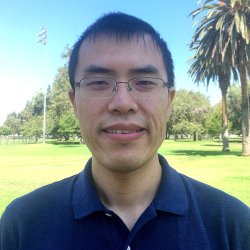Development of the next-generation data science tools for longitudinal ageing data
It is projected that more than one million people will be living with dementia in the UK by 2025. The global rise in dementia prevalence - driven by age and life expectancy increases - has led to intensified efforts to advance cognitive decline and dementia research and identify new insights to improve our understanding of its development and enhance quality of care. Among such efforts are the seminal Health and Retirement Study (HRS) and its sister studies in over 25 countries (e.g., the English Longitudinal Study of Aging), resulting in a world-spanning and longitudinal databases on ageing with large nationally representative samples. These extremely rich datasets offer an unprecedented opportunity for developing next-generation data science tools for early identification and predicting the trajectory of cognitive decline and dementia in large populations.
Start date
1 January 2023Duration
3.5 yearsApplication deadline
Funding source
School of Health SciencesFunding information
Stipend paid at the standard UKRI rate (currently at £16,062 for 2022-23). Both domestic and international students are eligible and welcome to apply.
About
For over three decades, the Health Retirement Study (HRS) and its sister studies in UK, Europe, and other countries/regions have amassed a large amount of longitudinal data on the trajectories of cognitive functioning and health status among middle-aged and older adults. These extremely rich datasets offer an unprecedented opportunity for developing next-generation data science tools for early identification and predicting the trajectory of cognitive decline and dementia in large populations. Particularly, this project will utilise not only the original data in HRS and its sister studies but also the survey response behavioural paradata (i.e., data recording how study participants responding to survey questions) derived by the supervisor as part of an ongoing international collaboration.
The prospective student will have the opportunity to work in a collaborative and interdisciplinary environment and interact with researchers in health informatics, medical statistics, behavioural science, gerontology, and survey methodology from the UK and US. The student will handle big and complex longitudinal ageing data and develop approaches in advanced statistics and artificial intelligence, including supervised and semi-supervised statistical learning models for early identification and predicting the trajectory of cognitive decline and dementia. The student will learn and practice skills that are necessary for conducting health informatics research with a focus on healthy ageing, which will support the student to pursue a career in academia or industry after graduation.
Related links
Machine Learning Study Innovation in Ageing articleEligibility criteria
Applicants should have an upper second class honours degree in a relevant discipline. The ideal candidate will have a background on quantitative methods including but not limited to statistics/biostatistics, operations research, engineering, epidemiology, econometrics, or psychometrics, experiences in programming, and strong interests in research about the use of information technology to improve human health and well-being.
Both UK and overseas students can apply.
English Language requirements
IELTS Academic: 6.5 or above (or equivalent) with 6 in each individual category.
How to apply
Applicants will apply online via the Health Sciences PhD programme page.
Contact with the supervisor (Haomiao Jin, h.jin@surrey.ac.uk) is strongly recommended in prior to submitting the formal application online.
Studentship FAQs
Read our studentship FAQs to find out more about applying and funding.
Application deadline
Contact details
Haomiao Jin
Research

Studentships at Surrey
We have a wide range of studentship opportunities available.

